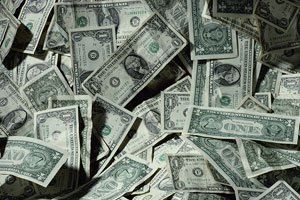South Valley National Bank’s parent company, Pacific Capital
Bancorp, will suspend dividend payments to shareholders, prompting
credit rating agencies to downgrade the bank’s ratings and sending
its stock price plunging to an all-time low, according to company
spokespeople and industry professionals.
Morgan Hill
South Valley National Bank’s parent company, Pacific Capital Bancorp, will suspend dividend payments to shareholders, prompting credit rating agencies to downgrade the bank’s ratings and sending its stock price plunging to an all-time low, according to company spokespeople and industry professionals.
The chain of events that started Monday is not likely to directly affect bank customers, but those who own shares will notice an impact, said a local financial adviser.
“A lot of people have made a lot of money on this stock. When you look at that stock price going from $40 (in 2005) down to $2, a lot of people have been impacted,” said Brad Ledwith of Ledwith Financial Services in Morgan Hill.
Pacific Capital owns three South Valley National Bank Branches in Morgan Hill and Gilroy, plus three San Benito Bank branches in the Hollister area. The company is headquartered in Santa Barbara, and owns about 40 other regional bank branches throughout California.
The company’s stock price closed at $2.69 a share Wednesday, two days after Moody’s Investor Services and DBRS lowered the company’s credit ratings. Near the end of the day Thursday, the price was about $2.25 per share.
“The downgrade reflects the challenges the bank may face in raising capital in a weaker economic environment,” said a press release from Moody’s.
It’s no news that the company has suffered lately, as financial institutions across the country have fallen victim to the worsening credit crisis that has significantly contributed to the current economic downturn. On Friday, the stock price reached a five-day high of $4.38. In Pacific Capital’s heyday from 2005 to mid-2007, its stock hovered between $30 and $40 per share.
As of Monday, not only are shareholders stuck with that loss, but they won’t be paid any quarterly dividends for up to five years. Via a press release, the company announced it will suspend interest payments on $69 million worth of security notes, saving an anticipated $32 million in capital for each of the next five years. Stock dividend payments will also be suspended, the press release said.
“The actions we announced this week are designed to preserve capital,” said Pacific Capital spokeswoman Debbie Whiteley in an e-mail. “They have no impact on the operations of any of our community banks or our ability to meet the financial services needs of our customers.”
Following Monday’s announcement, Moody’s dropped Pacific Capital’s issuer ratings and its subsidiary Pacific Capital Bank’s financial strength rating from a C to a D+. Furthermore, DBRS, another international credit rating agency, downgraded the company’s issuer rating from BBB to BB.
“It’s kind of like a credit score,” explained Ledwith, who has followed South Valley National Bank and Pacific Capital for the 13 years he has worked in Morgan Hill. “(Now) it costs them a lot more to borrow money as far as interest is concerned.”
If the economy continues to worsen, the resulting escalation in credit costs could cause “further capital strain and ratings downgrade,” according to Moody’s.
Many long-term Pacific Capital investors have seen their personal assets climb and plunge.
For a stockholder who invested $2,000 in the company 20 years ago, for example, dividends would have reached $3,000 per year by the end of 2005, Ledwith explained.
“Now you have zero dividends so no income (from the stock),” said Ledwith, adding that the stock is now worth less than it was 20 years ago.
One factor underlying Pacific Capital’s decision to stop paying dividends, according to Ledwith, is its acceptance of federal funds through the Troubled Assets Relief Program. The stimulus program, the purpose of which was to buy struggling banks’ assets, comes with “strings attached.”
“The government says, ‘you are not making money, how can you pay back your investors when you should be lending out money? You’re rewarding your shareholders while you’re losing money,'” Ledwith said.
In November 2008, Pacific Capital sold about $180 million worth of stock to the federal government under a TARP agreement, according to the U.S. Dept. of Treasury web site www.financialstability.gov.
Whiteley said under the TARP agreement, dividend payments can be deferred for up to six quarters without penalty. She said the bank will resume dividend payments when its overall performance improves.
“TARP funds were important to our bank because they bolstered our capital levels during a time of economic uncertainty,” Whiteley added.
South Valley National Bank director, shareholder and Morgan Hill resident Roger Knopf declined to comment, referring all questions to Whiteley.
Pacific Capital claimed $9.2 billion in total assets as of March 31.
Similar regional banks that serve areas in Santa Clara County have also suffered due to the ongoing credit crisis.
Shares of Heritage Commerce Corp., which owns Heritage Bank, closed at $3.81 Wednesday. In 2007, its shares reached $25. And shares of Pinnacle Bank, which are traded on over-the-counter bulletin boards, closed at $4.10 Wednesday, down from $10.15 in 2007.
Spokespeople for these two banks could not be reached by press time. However, an employee of Pinnacle Bank, who did not give her name because she was not authorized to speak to the media, said Pinnacle avoided the brunt of the credit problems because it just opened in 2006 and did not start out with large real estate holdings.















